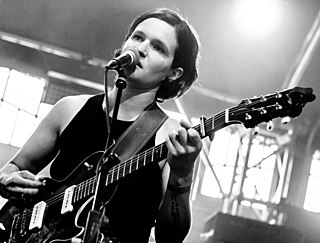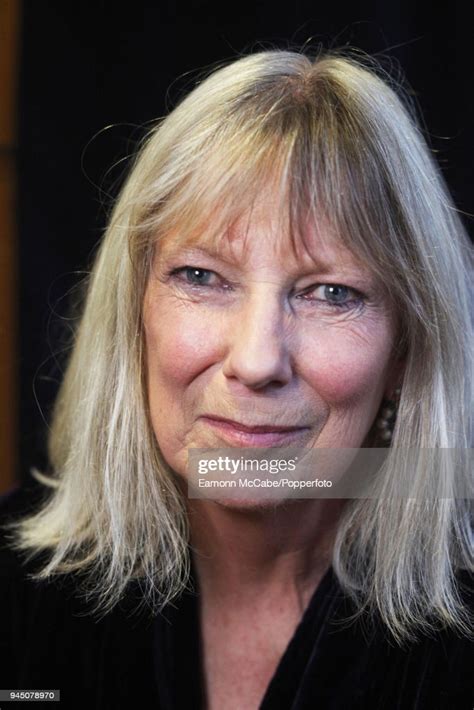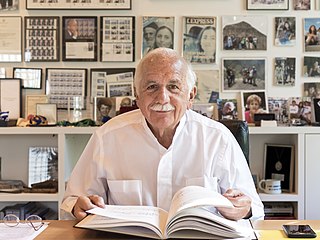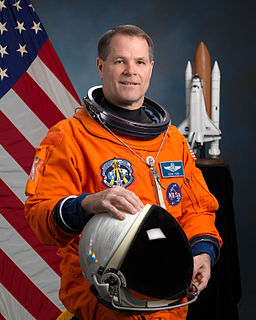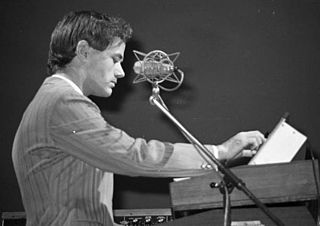A Quote by Adrianne Lenker
I want everyone to feel very welcomed in the space of our music and our songs, it doesn't matter what you believe or think, I just want to cultivate a space of peace and to touch on these things that bind us as humans.
Related Quotes
I think there's a very fundamental urge to create a safe space, a home; most animals have that impulse, and humans certainly do - with some exceptions, like nomadic people who perhaps don't feel the need to settle in quite that way. But most of us do want to have space, somewhere we feel secure and where we repeatedly return. Somewhere we can sleep without fear. And there's nothing wrong with that desire. It's completely understandable. It only becomes ugly when that creation of a safe space involves making an enclosure from which other people are kept out.
For me space rock is something that takes you out of yourself and out of your normal realm. And if space happens to be that inner space or outer space it's a very personal thing. I think that mantra is space music. I think that Native American tribal drumming is space music. Anything that allows you to go inward to go outward and to move within a space that is not normal to your reality.
All changes in space which we see, hear, smell or taste are literally tactile impressions. All our senses are variations of our unique sense of touch. Two approaching objects touch one another when they finally meet without a noticeable space between them. ... This is what happens in any condensing matter in which the outer aspects move towards a centre... Each single part of matter approaches its neighboring part until the two collide, causing an impact or a pressure. It is space, which appears and disappears between and round object and in the movements of the particles of the object.
We have all kinds of limitations as human beings. I mean we can't see the whole electromagnetic spectrum, we can't see the very small, we can't see the very far. So we compensate for these short comings with technological scaffoldings. The microscope allows us to extend our vision into the microsphere. The telescope allows us to extend our vision into the macrosphere, the Hubble Space Telescope extends our optic nerve into space, and it allows us to mainline space and time through our optic nerve.
The ability of the humans to not only function in space but be very functional when they arrive at their destination, those are the kinds of things we're learning from the science. Fuel transfer technologies and all the things we can learn about the space environment are all valuable to us for pressing on out.
The future is about wings and wheels and new forms of space transportation, along with our deep-space ambition to set foot on another world in our solar system: Mars. I firmly believe we will establish permanence on that planet. And in reaching for that goal, we can cultivate commercial development of the moon, the asteroid belt, the Red Planet itself and beyond.
To view space as, "Well, let's go to Mars now," or "Let's do this now," maybe we should rethink of space as our backyard and have a suite of launch vehicles that can enable any ambition a person has regarding space. It's the same way you can go to buy a car: I want to go offroading, I'll buy this model. I'm a city driver, that's this model. I want to use less fuel, well, that's this model. They're not selling you one car, you have options. So when I think of space, I think of having options.
I only ever really follow the music, that's what I'm about, I don't think about it too much. I just wanted to make a piece to sleep through, to sort of explore that sleeping space as a listening space and to have a different encounters between our listening minds or hearing minds and music. I think that's really interesting. After that I feel I've done my job.
In our daily lives we attend primarily to that which the senses are spelling out for us: to what the eyes perceive, to what the fingers touch. Reality to us is thinghood , consisting of substances that occupy space; even God is conceived by most of us as a thing. The result of our thinginess is our blindness to all reality that fails to identify itself as a thing, as a matter of fact.
I think, she began quietly, I think we want... not just bread for our bellies. We want more than only bread. We want food for our hearts, our souls. We want- how to say it? We want, you know- Puccini music.... we want for our beautiful children some beauty. She leaned over and kissed the curl on her finger. We want roses.
